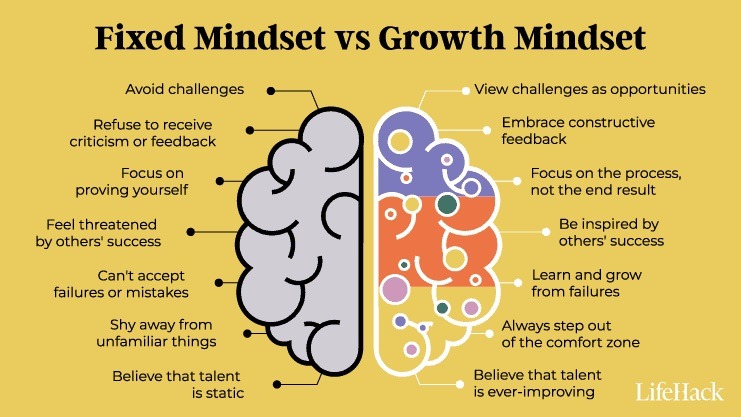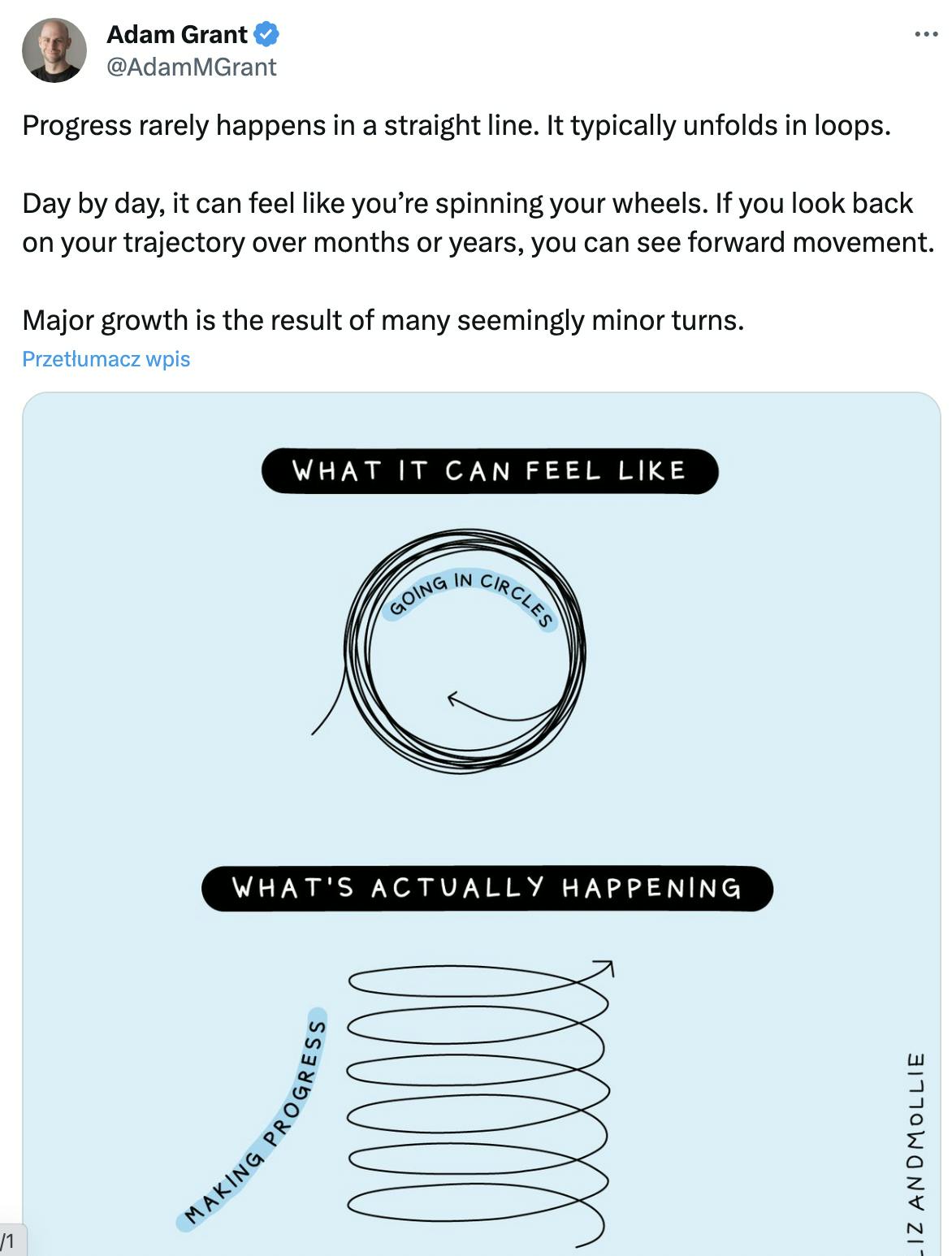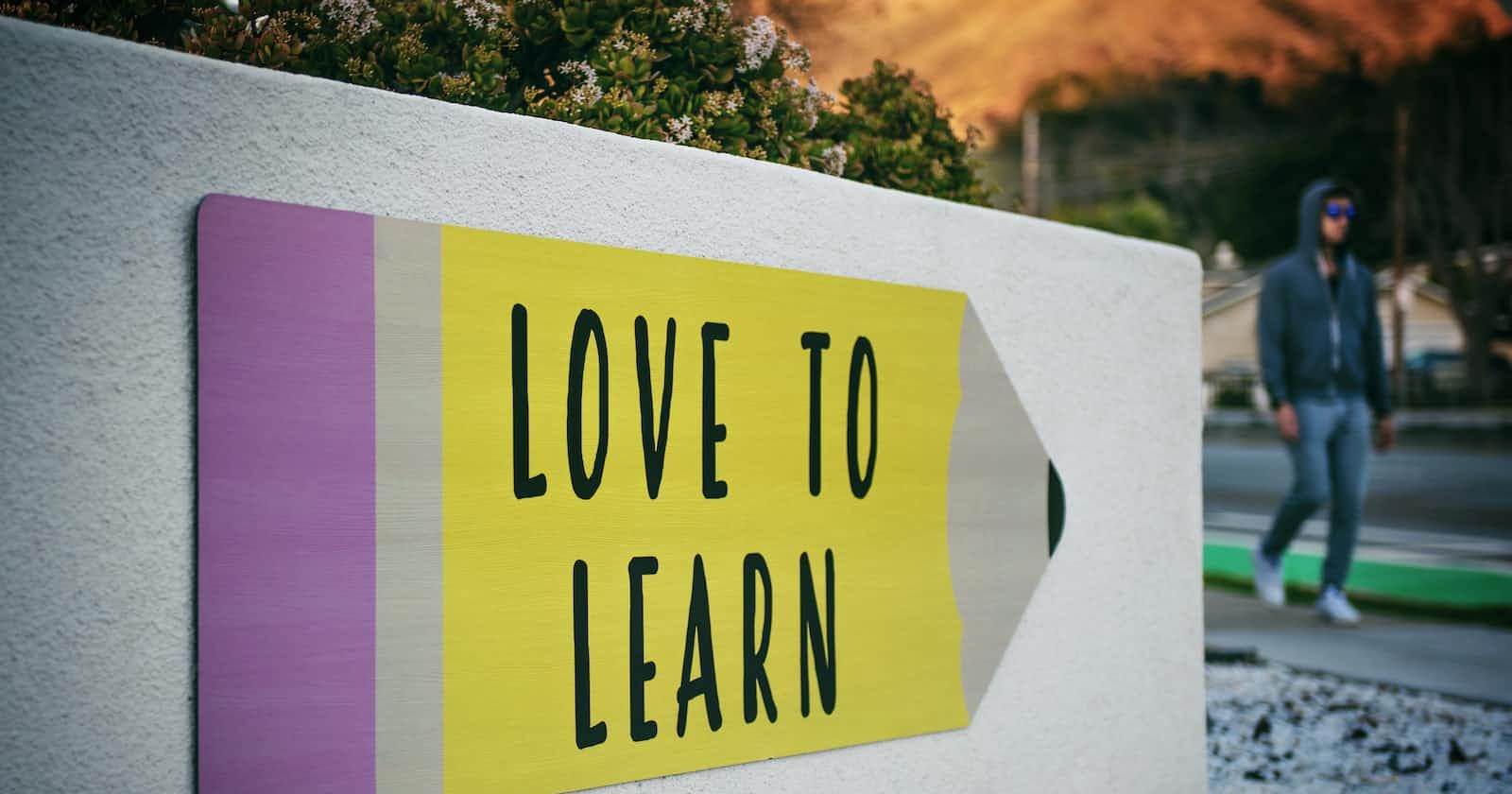More than one year ago I wrote the article about creating a learning framework that would keep our self-development on track. In this post, I would like to elaborate on it and add several ideas related to the topic: the concepts of mindset and talent, the significance of incremental progress, and the power of curiosity in expanding our horizons.
Exploring unknown unknowns
The concept of "known unknowns" refers to the things you are aware you don't know. For example, you know you don't know how to play a musical instrument. "Unknown unknowns" are the things you don't even realize you don't know, like a new field of science or a skill you've never heard of. These can be game-changers in personal development. Broadening your horizons means exposing yourself to diverse knowledge and experiences.

A conservative approach to learning often involves sticking to what you already know or improving existing skills. While this is valuable, it can limit your growth potential. Curiosity, on the other hand, drives you to explore the unknown and learn new things. It opens doors to unexpected opportunities and is a powerful driver of success because it pushes you to explore beyond your comfort zone.
Simple examples of venturing into the realm of 'unknown unknowns' include reading a blog post or book, watching a conference video, or listening to a podcast in a field that falls outside your usual interests or expertise.
Being "talented" enough
People with a fixed mindset often limit themselves by thinking they can only succeed in areas where they believe they have innate talent or where they've demonstrated prior competence. This can create a fear of failure in new areas or a reluctance to take on challenges that might stretch their abilities.

I'm firmly convinced that nothing is truly innate or inherent (I have written about it here). Of course, it does not mean that everybody has the same chance to succeed. However, every skill and capability is a product of prior experiences. While it's true that some individuals appear to acquire skills more rapidly than others, there must always have been preceding practice or experience that contributed to their current level of ability.
From the argument that expanding our horizons and attempting to excel in areas where we might not consider ourselves "talented" (do not have enough expertise or skill-improvement rate now) can lead to success, it's crucial to understand that trying doesn't guarantee surefire success. Achieving success in virtually any field is challenging. It requires determination and grit and the support of an enabling environment. This includes people who can guide and mentor us, financial resources to fund our practice, and other essential resources like good health that are necessary for competitiveness and eventual success. Nonetheless, the growth mindset illuminates the possibility of success. It underscores our capacity to seek out resources, nurture our environment, methodically design our practice, and continually invest in training—akin to buying a ticket for the lottery of our aspirations.
Radical incrementalism
Another reason for our reluctance to embark on self-improvement journeys is our tendency to assess others' expertise solely by their final achievements. Many people tend to focus on the end result, which can seem daunting. We often fail to see the detailed journey they took to get there.

Take writing a great book, for instance. Many people might believe it's beyond their reach, deeming themselves insufficiently skilled. However, the creation of a book is far from an instantaneous feat; it demands a significant, enduring effort. The sheer scale of the task can feel overwhelming. Therefore, a more constructive approach is to acknowledge that substantial progress in any field doesn't happen overnight. Patience is the key. Perhaps we cannot craft an entire book in one go, but we can start with a blog post. Even writing a blog post is a process that requires time and commitment. Embracing radical incrementalism, all the while exercising patience can be our path to success.
Timeboxing
Timeboxing is indeed a valuable strategy for both short-term and long-term skill development. It allows us to allocate a specific amount of time to an activity, granting it an opportunity to grow and flourish. However, if we find that we are not deriving the expected enjoyment or benefit from the activity, we can gracefully and without hesitation choose to discontinue it. This structured approach enables us to explore various activities, maintaining a balance between commitment and adaptability in our skill development journey.
Just a human
Everyone can have off days or less productive moments.

It's crucial to remember that mastery or significant progress in any endeavor takes time, and one bad day doesn't define your overall journey. As we discussed in the section on radical incrementalism, true improvement isn't achieved in a week or overnight. Instead, it's a gradual process that involves consistency and resilience. Making mistakes or taking steps back is an intrinsic part of the improvement path.
So, when you encounter a challenging day, it's important to be kind to yourself, acknowledge it as part of the journey, and look forward to getting back on track without putting undue pressure on yourself.

